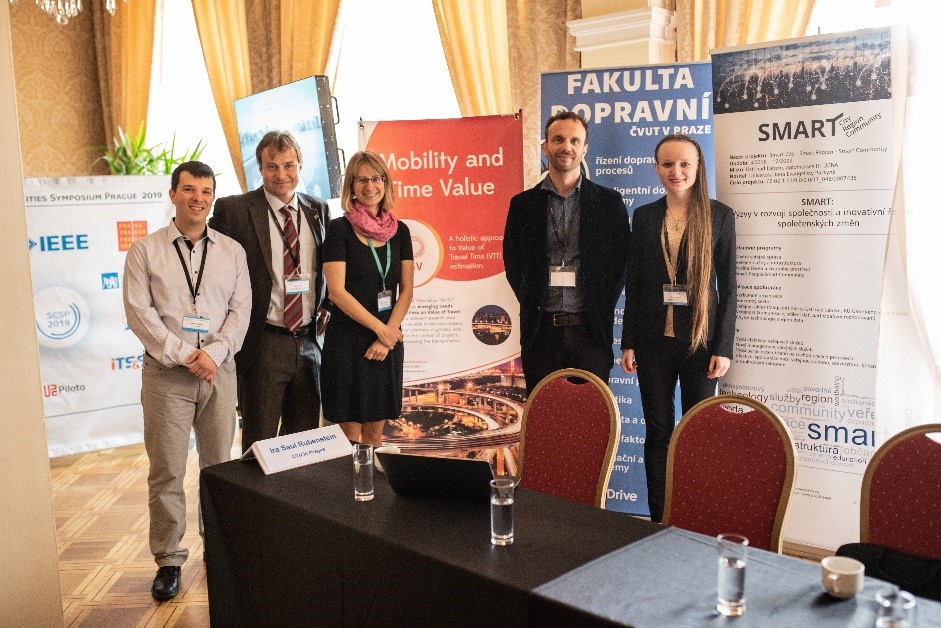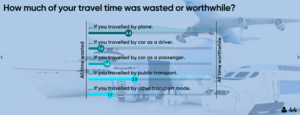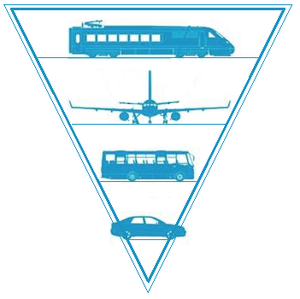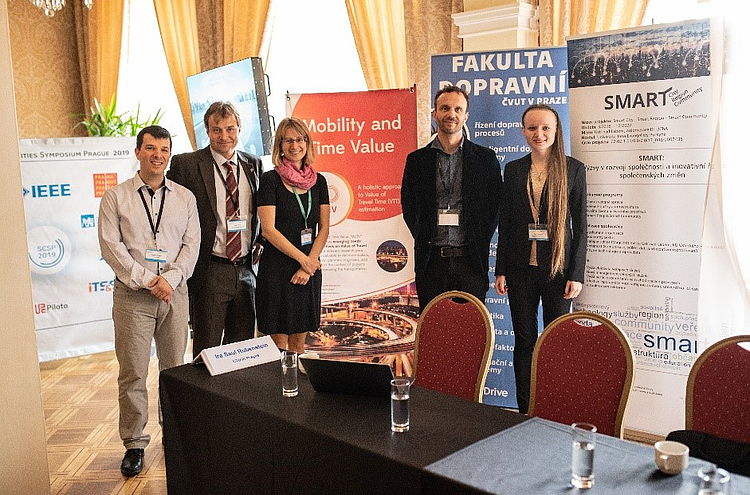Once a year, since 2015, the Czech Technical University (CTU) in Prague hosts the Smart City Symposium Prague (SCSP), a lively conference on smart cities with regular international participation. Researchers from American institutions such as the University of California Santa Barbara, the University of Texas at El Paso and the University of Maryland regularly participate in the SCSP symposia. In Europe, the University of Žilina, also due to the historical relationships and common research interests, has been an active contributor to the various editions of the conference, for the 2017 and 2019 editions thanks to the ERAdiate team.

The symposium aims to be a multidisciplinary forum for exchanging ideas and best practices in the field of smart cities not limited to theory but also including real world applications. This year a special focus was on research addressing people’s travel behaviour and their selection of activities. These topics are closely related to the ones investigated in the H2020 MoTiVand the OPVVV SMART projects, respectively from the viewpoints of value of travel time and mode choice. The complementary focus of the two projects resulted in a joint workshop investigating aspects of mode choice and value of time as important elements to acknowledge in policies and business solutions for human-centric, smart and liveable cities. Accordingly, the panel of experts contributing to the workshop featured Giuseppe Lugano (ERAdiate team, UNIZA) and Ondřej Přibyl (CTU) as academic representatives from the MoTiV and SMART projects, as well as Jan Edlman from Škoda Auto DigiLab and Petra Holečková from Homeport Ltd bike sharing as non-academic stakeholders shaping cities’ transport and mobility. The workshop was moderated by Yannick Cornet (ERAdiate team, UNIZA) and Eliška Vejchodská (University in Ústí nad Labem).

To set the scene, the workshop was opened by the presentations of the MoTiV and SMART projects. These allowed introducing to the audience some concepts that were later expanded in the panel discussion, which engaged the audience through an interactive format. Indeed, the audience was given the opportunity to express views on the questions discussed through the instant survey tool Mentimeter. In relation to perceived value of travel time, one of the most interesting questions concerned how much time is perceived as wasted or worthwhile across various transport modes. Traditionally, travel time is considered as fully ‘wasted time’ in transport economics, as value is regarded in relation to the activity -typically, productive work, to be carried out at destination, thus the reason for the journey (i.e. the trip purpose). Various trends in transport and mobility are contributing to consolidate a view in which travel time can be worthwhile. More evidence is needed on what makes a trip worthwhile or not, across transport modes and in relation to other factors. During the workshop, the audience provided a view on this matter: out of 44 participants who expressed their view, public transport resulted as the transport mode enabling a higher perception of worthwhile travel time, followed by plane. Instead, travelling by car as a driver received the lowest scores in terms of worthwhile travel time.
 Overall, these general views reflect the findings of recent studies, in which the train and the plane were found as the transport modes in which time can be spent most productively. It is worth noting that in the SCSP workshop, the concept of worthwhile travel time was broadened to include not only productivity, but also enjoyment and fitness dimensions – in line with the MoTiV conceptual framework. Perhaps due to this broader scope, public transport received the highest scores for the feeling of enjoyment and pleasant time spent in it. The report on the joint workshop on mode choice and value of time are available here.
Overall, these general views reflect the findings of recent studies, in which the train and the plane were found as the transport modes in which time can be spent most productively. It is worth noting that in the SCSP workshop, the concept of worthwhile travel time was broadened to include not only productivity, but also enjoyment and fitness dimensions – in line with the MoTiV conceptual framework. Perhaps due to this broader scope, public transport received the highest scores for the feeling of enjoyment and pleasant time spent in it. The report on the joint workshop on mode choice and value of time are available here.
Workshop participants positively judged the insights and reflections that emerged during the discussions, expressing to some extent surprise for implications of concepts of mode choice and value of time on everyday life. In addition to the workshop, Yannick Cornet and Giuseppe Lugano also contributed to SCSP 2019 through the scientific paper “Worthwhile Travel Time: Design Challenges of Capturing the User Experience by Smartphone”, which illustrates the complexity of collecting reliable data on travel experience through the Woorti app in MoTiV.

